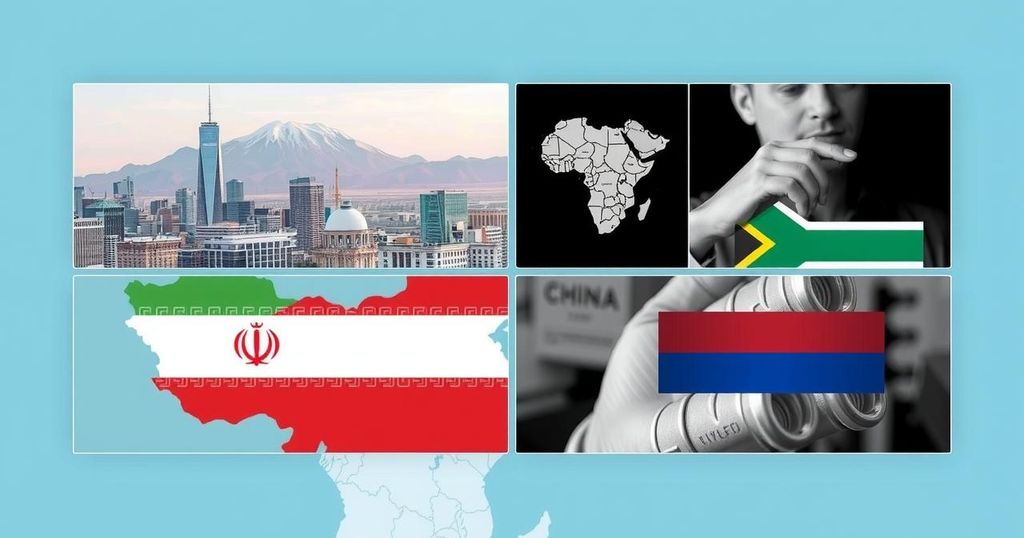Global Affairs: Currency Crisis in Iran, Tourism Expansion in China, and Security Measures in South Africa and Russia
Iran’s rial has dropped to a historic low amid crises; China boosts tourism with extended visa-free stays; South Africa closes 1,041 informal grocery stores due to health risks; Russia arrests an Uzbek suspect in a high-profile assassination linked to Ukraine.
Recent developments reveal significant challenges and shifts in various nations. Iran is experiencing a critical financial crisis, with its rial plummeting to an all-time low of 777,000 against the US dollar. Concurrently, China is capitalizing on tourism by extending the duration of visa-free travel to attract visitors from 50 countries, including the United States. In South Africa, the government has closed over a thousand informal grocery stores, addressing health concerns linked to contaminated food products. Meanwhile, Russia has apprehended a suspect believed to have assassinated a high-ranking general, allegedly for a financial incentive from Ukraine.
As Iran grapples with a multitude of crises, including regional conflicts and an energy shortage, the depreciation of its currency has reached alarming levels. The Chinese government’s moves to extend visa-free travel periods aim to revitalize tourism and stimulate economic growth post-pandemic. South Africa’s initiative to close informal markets responds to public health emergencies caused by the consumption of unsafe food items. In Russia, security agencies are intensifying their efforts against perceived threats, exemplified by the arrest connected to the assassination of a notable military official.
The unfolding events in Iran, China, South Africa, and Russia showcase the complex interplay of economic, social, and political dynamics. Iran’s economic woes underline the fragility of its regime amid external pressures. China’s tourism initiatives indicate a strategic pivot towards economic recovery. South Africa’s public health response exemplifies the urgent need for safety in consumer practices, while Russia’s internal security measures reflect ongoing tensions with Ukraine. Each scenario presents unique challenges necessitating careful attention from international observers.
Original Source: www.gzeromedia.com




Post Comment